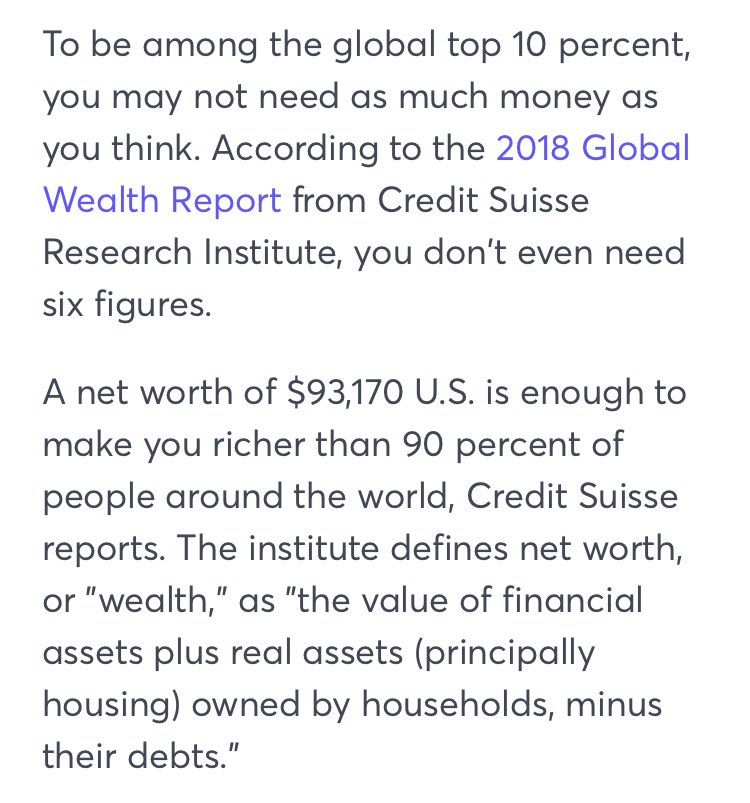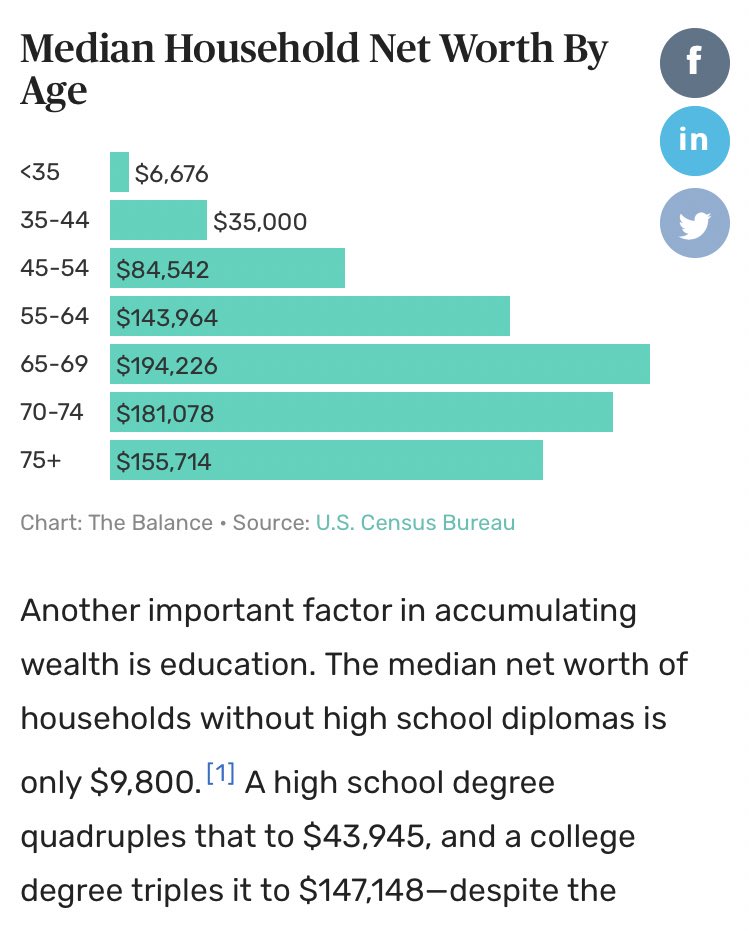As @SomeStingray pointed out the other day, blaming 100 Companies & their CEOs is very similar morally, causally, analytically & social scientifically to blaming consumers as individuals. I’d like to add that blaming inequality also presupposes that consumption is the issue.
Within a country, the type of emissions to which income/wealth inequality is most relevant morally & causally is consumption emissions—emissions correlate spatially with income, but that’s misleading, for reasons I will explain in a bit.
But to get there, let me talk about the other way income inequality correlated with emissions & thats *globally*—this analysis ties both the individual & spatial interpretations of emissions together, except this intrinsically requires looking at whole populations as responsible
When articles say the top 10% of the world emits 50% of CO2, that, first of all, is regresssing All emissions types—state, trade, investment, consumer, waste—& treated all national income as earned income.
Between 1/16th and 1/5th of Americans fall into the global 1%—variation comes from household vs. individual calculations, if you use the methods of people arguing inequality causes emissions, about 1/6th of Americans by households fall into global 1%
When you blame ‘inequality’ or the ‘1%’ or ‘10%’, you are implicitly blaming:
1. Individuals choices & behaviors
2. Specific individuals both as consumers & owners and
3. Between 1/3 & 1/2 of individuals living in the Global North
1. Individuals choices & behaviors
2. Specific individuals both as consumers & owners and
3. Between 1/3 & 1/2 of individuals living in the Global North
But these statistics are misleading in the first place—it’s basically meaningless to correlate the average total income of an area, & its emissions & then blame individuals or consumption—MOST of that comes from production, the state, trade & investment
The state is already, at minimum, 20-25% in every country—the median & mean are both above 33%. That’s an independent floor, and it depends on *national* income & activity, not individual choices or any such thing.
Even if you assume that trade, production & investment follow consumption—and, by the way, they don’t really do that in practice & often it runs the other way—most of that is basic level consumption, again, defined by national income.
The behavior of elites & their consumption affects the consumption emissions & their derived emissions, but the comparison has to be to what would happen if they earned the median & so did everyone else
But, again, it’s national & regional income that determines state expenditures, the floor under consumption, and, as a result of both of those, a floor under trade & investment (necessary to reproduce at minimum).
Once this is considered, we could eat all the rich of the world, set everyone incomes to median, and we wouldn’t even be a third of the way to our emissions targets globally
In reality we’d be far below 20% of the required targets—it depends on what you assume the elasticity of trade, investment & consumption are to each other and are to income.
The accusation that my argument ‘blames consumers’ is funny because:
A. I am not making a moral argument at all (although I am *rebutting* one) &
B. The whole point is precisely how little consumption & individual choice matter at all
A. I am not making a moral argument at all (although I am *rebutting* one) &
B. The whole point is precisely how little consumption & individual choice matter at all

 Read on Twitter
Read on Twitter









